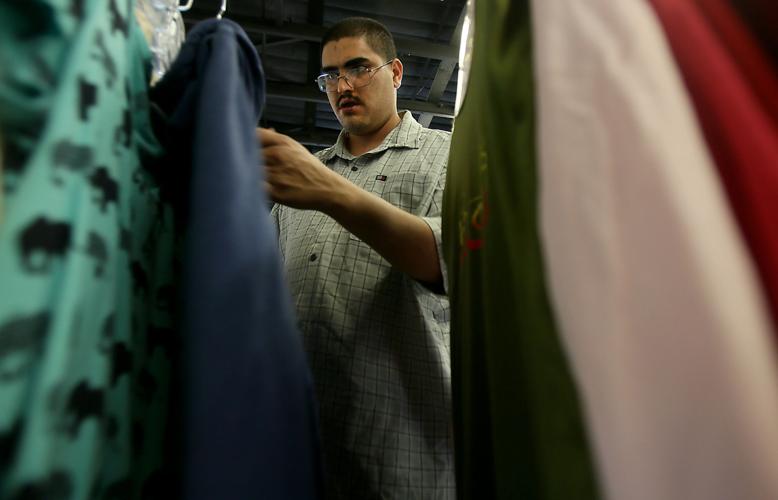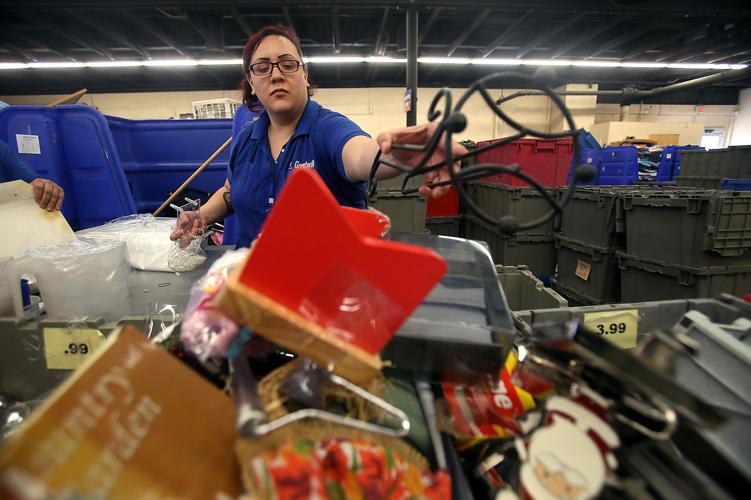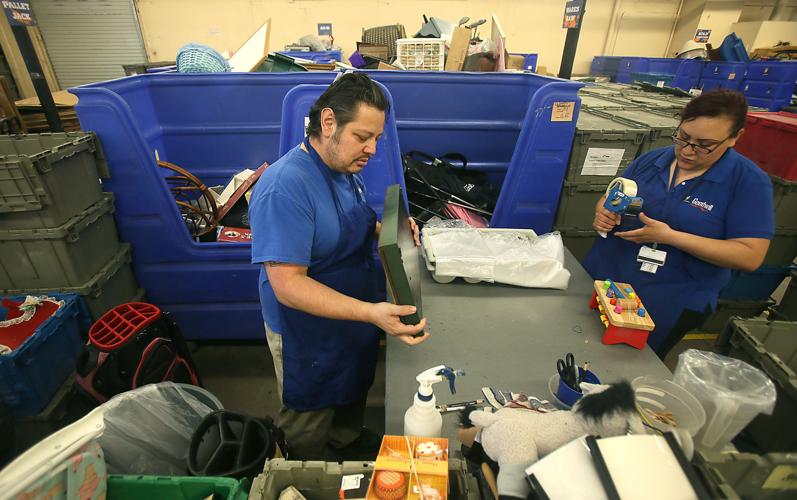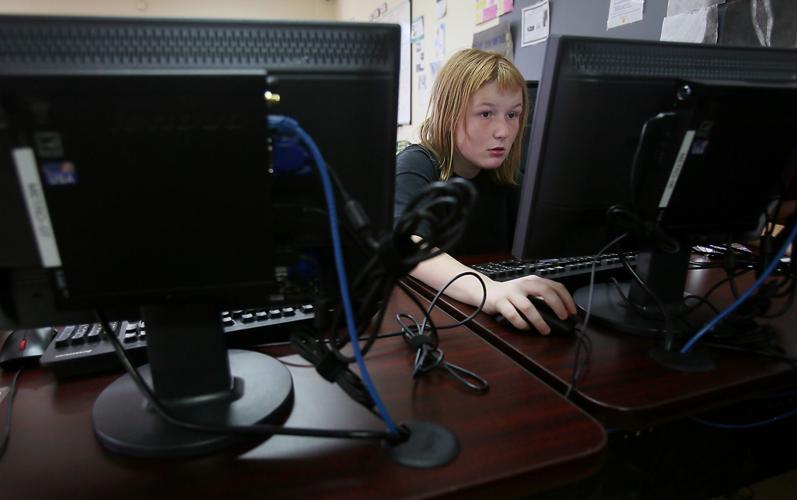On any given day, I’m usually wearing a garment bought at Goodwill — a shirt, pants, shorts. Sometimes you can tell, but mostly they’re pretty good quality.
I do this largely because I’m a cheapskate, but also because there’s a sort of cycle-of-life feeling about donating your own leftover goods to Goodwill, then buying somebody else’s stuff there, all the while supporting people who need help.
And yet, for a few years I’ve been troubled whenever I stop at any of the nonprofit’s proliferating retail stores around Tucson to donate or to shop.
Beginning about 2012, protests began rising that nationwide, some regional Goodwill organizations were exploiting disabled workers by using a federal program to pay them subminimum wages. At the same time, many Goodwill executives were making hefty six-figure salaries. A long NBC story on the issue aired in 2013, bringing it to the broader public’s eyes.
So naturally, I wondered, do the local Goodwill stores where I drop stuff off and shop have the same issues? It turns out they have — sort of — but not to the degree that I would stop shopping there.
When I asked about the subminimum wage, the spokeswoman for Goodwill Industries of Southern Arizona, Judith Simmons, agreed to meet me at the store at 300 N. Fourth Ave. This is one of the older Goodwill stores in the Tucson area, where the organization has undergone a massive expansion in the last nine years.
In 2007, it had four stores and one outlet. Now it has 20 stores.
Total revenue has gone from $9 million to $28 million per year — the vast majority of it from sales.
At the same time, it has remained one of the shrinking minority of the 164 Goodwill organizations nationwide using the federal program that allows employers to pay less than minimum wage to some disabled workers.
This year, 62 Goodwills used it, and that number will go down by nine at the end of the year, national spokeswoman Joye Taylor said.
“Over the past five years, a significant number of Goodwill organizations have transitioned away from use of the certificate,” Taylor said via email. “The Special Minimum Wage Certificate is one tool in an employment tool kit. Today, more and more Goodwill organizations are exploring alternatives to the certificate and innovating and using other opportunities for individuals who formerly worked under the certificate.”
Among all of Tucson’s Goodwills, there are 24 so-called “participants” in the group-supported employment program, Carey Doetschman, who leads that program, told me. All of them are eligible to receive a subminimum wage, but only 15 do.
Even those who receive the subminimum wage don’t receive it all the time — on average about 60 percent of the time, Simmons said. That only occurs in a specific job, for which they’ve been measured. If they move into another, the wage must be minimum again.
“It’s a training program for people with significant barriers,” Simmons said. “They get skills to hopefully get into competitive employment.”
The participants in the program are tested at least every six months, and they are paid by how much they do in comparison to a normal employee. If they can hang clothes at 50 percent the expected rate, then they get 50 percent of the pay for that job.
I spoke with one man who’s been in the program for five years, Bobby, who previously worked for the Beacon Group. That’s the biggest user in Tucson of the so-called “sheltered workshop” program that allows for subminimum wage pay. He moved on to Goodwill and is looking forward to moving out into the workaday world by getting a job taking tickets at University of Arizona sports events. His guardian asked that we not use his last name.
Another man, Mario Coronado, told me he’s been working at Goodwill for six years and is fine with whatever work is thrown at him — “Whatever needs to be done, I do it.”
“Just get it done,” said Coronado, 28, who was sorting clothes. “I’m a simple guy.”
If abuses occur in the so-called 14(c) program — named for the code under which it is established — it is most likely in the area of moving people into the workforce, said J.J. Rico, executive director of the Arizona Center for Disability Law.
“The goal is that they be trained to transition out,” he said. “Somebody who has the skills to work outside Goodwill — are they being evaluated properly?”
Simmons and Doetschman said employees are evaluated even more regularly than the required twice a year and many move up or out into other jobs. In any case, those 24 who are eligible for a subminimum wage are just a small portion of the 518 who work for Goodwill of Southern Arizona. There are an additional 10 programs directed at helping people get jobs and helping youth with disadvantages.
At the same time the Tucson Goodwill stores were exploding in number, executive salaries were also increasing into the eyebrow-raising levels. In 2010, the Goodwill board unanimously took the advice of a compensation consultant and goosed the pay of longtime President and CEO Suzanne Lawder, while also beginning a catchup process on retirement benefits. The idea was that she was underpaid compared to similar CEOs.
By 2013, that certainly wasn’t the case: Lawder made $458,712, Goodwill’s 990 tax forms say. In October 2014, Simmons said via email, Lawder sped up her retirement for health reasons. That meant that for 2014, she received a large payout of deferred compensation along with her already meaty salary, a total of $700,933.
That’s a mind-bending sum for a nonprofit executive in Tucson.
These were the contrasts that were driving the National Federation of the Blind crazy when it announced a nationwide boycott of Goodwill in 2012 — some disadvantaged workers getting subminimum wages, while executives got rich.
“Goodwill should be ashamed of such blatant hypocrisy,” Marc Maurer, the president of the federation, said that year.
But on the executive compensation front, too, Goodwill could be making some positive changes. Beginning in January 2015, two people took over as local co-presidents: Lisa Allen and Elizabeth Gulick. Each makes about $157,000 per year — a total of about $314,000.
So, on both fronts that concerned me, subminimum wages and executive pay, Goodwill appears to be improving. But if the local organization can make do with just 24 potential subminimum wage “participants,” then surely it can make do with zero and find other programs for those people or find the best job for them where they can merit the minimum wage.
If so, this cheapskate can shop his favorite store with a clean conscience.







